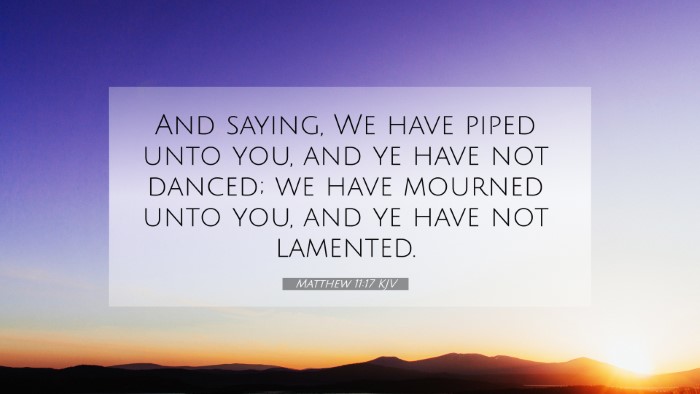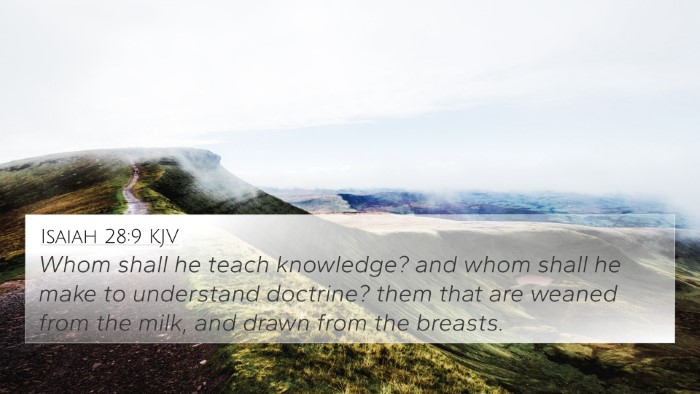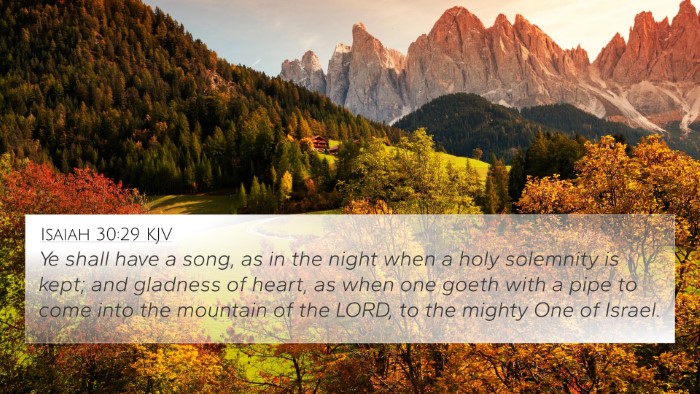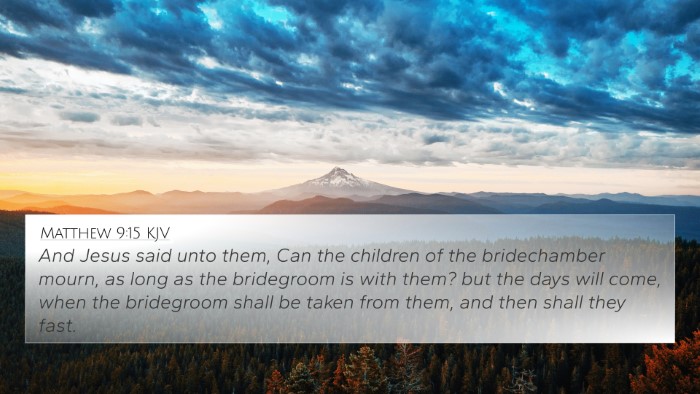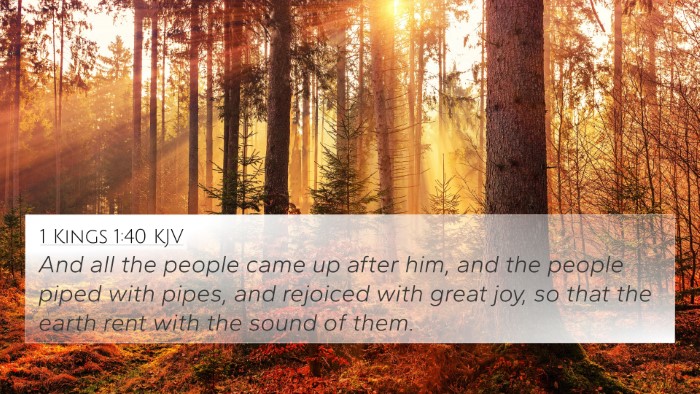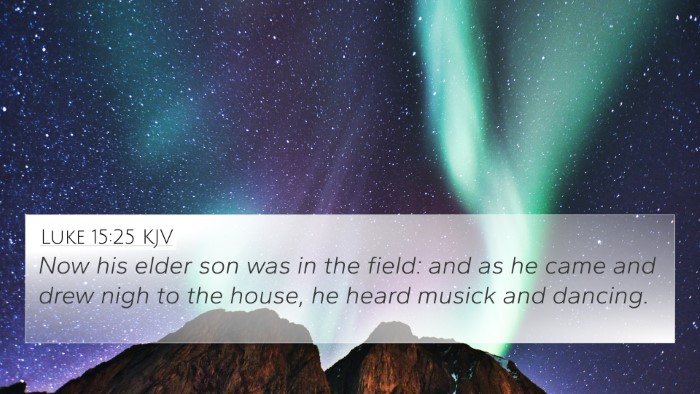Understanding Matthew 11:17
Matthew 11:17 says: "And saying, We have piped unto you, and ye have not danced; we have mourned unto you, and ye have not lamented." This verse illustrates a profound message regarding the reactions of the people to the messages conveyed by John the Baptist and Jesus Christ. Below we explore the interpretations and meanings of this verse through insights gathered from various public domain commentaries.
Interpretations from Commentaries
Matthew Henry's Commentary
Matthew Henry notes that this verse expresses the people's indifference to divine calls. Just as children were expected to respond joyfully to music or mournful tunes, the expectation was that the people would react appropriately to the spiritual messages being delivered. Henry emphasizes the contrast between the jubilant message symbolized by "piped" and the somber one represented by "mourned," highlighting human resistance to spiritual conviction.
Albert Barnes' Notes
Albert Barnes elaborates on the idea that the verse serves as a metaphor for the invitation to both joy and repentance. He points out that the lack of reaction to either call signifies a deeper spiritual malaise within the people. Barnes connects this verse to the theme of rejection faced by both John and Jesus, illustrating that people often fail to respond to God's initiative, whether it be a call to joy or a call to repentance.
Adam Clarke's Commentary
Adam Clarke provides an insightful exploration of the cultural implications of the metaphor used in Matthew 11:17. He states that the metaphor of "piped" and "mourned" refers to customary practices of mourning and celebrating at weddings, emphasizing how the people have not engaged with either spiritual message. Clarke stresses that this highlights the stubbornness and apathy of the people towards divine calls along with their refusal to embrace either joyous or mournful spiritual states.
Thematic Connections to Other Bible Verses
This verse connects thematically to several other passages in the Bible that address similar themes of human response to divine messages, juxtaposing joy and sorrow, and the consequences of indifference.
- Luke 7:32 - "They are like children sitting in the marketplace and calling to one another: 'We played the flute for you, and you did not dance; we sang a dirge, and you did not weep.'" This verse mirrors the concept of people failing to react to genuine calls from God.
- Isaiah 30:9-10 - "For this is a rebellious people, lying children, children unwilling to hear the instruction of the Lord; who say to the seers, 'Do not see,' and to the prophets, 'Do not prophesy to us what is right.'" This highlights Israel's resistance to God's guidance.
- John 5:40 - "Yet you refuse to come to me to have life." This highlights the indifference of the people towards the invitation of life offered by Jesus.
- Matthew 13:14-15 - "Indeed, in their case, the prophecy of Isaiah is fulfilled that says: 'You will indeed hear but never understand, and you will indeed see but never perceive...'" This highlights spiritual blindness and deafness.
- Revelation 3:16 - "So, because you are lukewarm, and neither hot nor cold, I will spit you out of my mouth." This verse addresses the danger of apathy in faith.
- James 4:8 - "Draw near to God, and he will draw near to you. Cleanse your hands, you sinners, and purify your hearts, you double-minded." This calls for an active response to God's call.
- Romans 10:21 - "But of Israel he says, 'All day long I have held out my hands to a disobedient and contrary people.'" This emphasizes God's persistent call despite human rejection.
Tools for Cross-Referencing Biblical Texts
To fully delve into the connections and deeper meanings of scripture, the following tools and methods can be beneficial:
- Bible Concordance: A valuable tool for searching specific words or phrases across different verses.
- Bible Cross-Reference Guide: Helps locate verses that are thematically or contextually linked.
- Cross-Reference Bible Study: A method of exploring parallel scriptures to expand understanding.
- Bible Chain References: This technique connects verses in a chain to guide thematic study.
- Bible Reference Resources: Guides, commentaries, and dictionaries that provide insights into connections between verses.
- How to Use Bible Cross-References: Learning effective strategies for locating and understanding related scriptures.
- Comprehensive Bible Cross-Reference Materials: Resources that provide extensive cross-referencing and thematic studies.
Conclusion
Matthew 11:17 serves as a poignant reminder of the human tendency to ignore divine invitations, whether expressed through joy or sorrow. By examining this verse in light of related scripture and insights from prominent Bible scholars, we can gain a deeper understanding of our responses to God's calls in our lives. The interconnectedness of biblical texts invites us to reflect on our spiritual engagement and encourages us to embrace both the joyous and sorrowful messages found in scripture.


